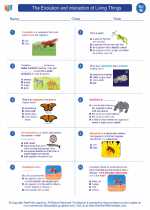Key Concepts in Environmental Technology
1. Pollution Control: Environmental technology focuses on developing methods and technologies to control and reduce pollution in air, water, and soil.
2. Waste Management: This includes strategies for reducing, reusing, and recycling waste, as well as the development of technologies for safe disposal of hazardous waste.
3. Renewable Energy: Environmental technology involves the development and implementation of renewable energy sources such as solar, wind, and hydroelectric power.
4. Environmental Monitoring: This involves the use of technology to monitor and assess environmental quality, including air and water quality monitoring.
5. Conservation and Restoration: Environmental technology also encompasses efforts to conserve natural resources and restore ecosystems that have been damaged by human activities.
Study Guide for Environmental Technology
When studying environmental technology, it is important to understand the following key topics:
- The causes and effects of air, water, and soil pollution.
- Various methods and technologies for controlling and reducing pollution.
- The principles of waste management and the importance of recycling and proper disposal.
- The role of renewable energy in reducing environmental impact and addressing climate change.
- The use of environmental monitoring tools and techniques to assess and manage environmental quality.
- The significance of conservation and restoration efforts in protecting biodiversity and ecosystems.
Additionally, students should be familiar with specific environmental technologies such as wastewater treatment systems, air pollution control devices, renewable energy systems, and environmental monitoring equipment.
Understanding the principles and applications of environmental technology is crucial for addressing current and future environmental challenges and ensuring a sustainable future for our planet.
.◂Science Worksheets and Study Guides Eighth Grade. The Evolution and interaction of Living Things

 Worksheet/Answer key
Worksheet/Answer key
 Worksheet/Answer key
Worksheet/Answer key
 Worksheet/Answer key
Worksheet/Answer key
 Vocabulary/Answer key
Vocabulary/Answer key
 Vocabulary/Answer key
Vocabulary/Answer key
